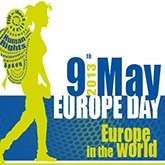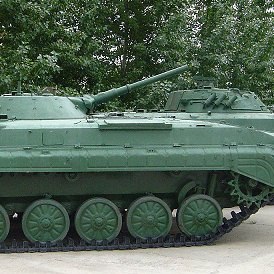May 9 is Victory Day for Russia and Europe Day for the EU. These continental celebrations, however, form an indicative illustration of how far away from each other Moscow and Brussels are – not only symbolically, but politically as well.
While Russia celebrates its past military strength, Europe valorizes peace and unity. Apparently, this distinction is crucial for understanding identities of the two political communities – one is more exclusive and securitized, while another is seemingly more inclusive and normative. Paradoxically, these two identity-building projects need and even constitute each other: Russia is eager to lambaste Europe exactly for what Europe feels to be proud of. A perfect match of two collective Selves in existential conflict with one another.
Yet the unity within Europe might be questioned, and the Europeans know this… perhaps the same way as many Russians feel that building their nation’s identity only on its glorious history might end up with pure symbolism. This sense of imperfection of the wider Europe – embracing both the EU and Russia – is specifically acute in countries that “returned” to Europe after decades of Soviet domination and nowadays rediscover how much they share with each other.
This is exactly what the Polish Ambassador to Estonia Grzegorz M. Poznański made clear in his public lecture on the eve of Europe Day. Poland is a country of particular political importance due to its informal role as Germany’s closest ally and the key promoter of the EU’s Eastern Partnership, a program that encompasses countries of Eastern Europe and South Caucasus.
Warsaw is very open to cooperating with Russia in different institutional forms, but not to the extent of granting to the Kremlin a right to block decisions that fall into the competencies of NATO and the EU. Moreover, the countries of Central Europe should not shy away from integrating their security resources – this is exactly what Poland worked on during its chairmanship in the Visegrad Four (V4). The result is the decision to strengthen regional cooperation on a wide array of issues quite sensitive to Russia – from air defense to military procurement. Germany and France legitimized a new security role of the V4 most likely to be developed under Polish guidance.
This story nicely reflects the growing process of regionalization within the EU. Poland promotes the idea of "V4 Plus" to engage the Baltic countries on the one hand, and the EU's Black Sea member states (Romania and Bulgaria) on the other. In the meantime, it certainly sees itself as a key component of the "Core Europe" – a hypothetical but very likely association of the European economies committed to healthy and effective financial policies. "Core Europe" is otherwise called a "Northern grouping" of countries that believe in fiscal and budgetary discipline as the main remedy for overcoming the current financial crisis. Instead of loans and debts the European northerners intensively develop innovative sectors, including digital markets. In this sense they mean to distinguish themselves from "Southern Europe“ with its proverbial profligacy and mismanagement. "The Greeks don't even imagine what the real austerity means – that one we and other former socialist states have been going through in the 1990s," Ambassador Poznański said, clearly positioning Central Europe, along with the Baltic states, in a group of sustainable and responsible Europeans. What adds coherence to this group is their historical legacy: "When the Poles and Estonians meet, they don't need to explain to each other what deportations and other Soviet wrongdoings meant to us."
Yet within "Core Europe" Poland does not want to lose its particularity. It is not part of the Eurozone and most likely will decide on the prospects to join it after the dust settles and all pros and cons become more clear. Warsaw does want to iterate its usefulness for Germany whose corporate sector, according to the Polish understanding, will reap the economic results of engaging Russia in joint modernization projects – with Polish assistance, of course.
It is hard to say whether a new, more regionalized and more Germany-centric EU will change its Russia policy. Most of the potential members of the "Core Europe" are Russia-sceptics (perhaps, with the exception of Finland). They might be interested in accentuating their differences with Russia exactly the same way as Russia might wish to keep underscoring its distinctiveness from its western neighbors. The concept of a wider Europe is still a far-away promise.
Andrey Makarychev is a Professor at the Institute of Government and Politics, University of Tartu, blogging for PONARS Eurasia on the Russia-EU neighborhood.











